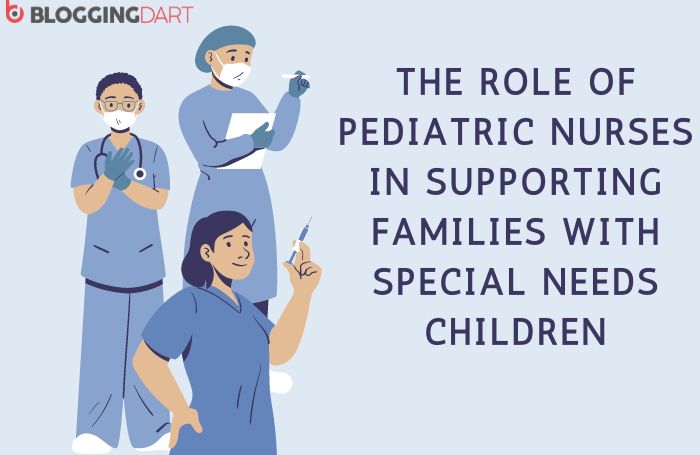
The role of pediatric nurses in supporting families with special needs children is both vital and multifaceted. These dedicated healthcare professionals stand at the forefront of care, offering not just medical treatment but also emotional support, education, and advocacy to ensure the well-being of children with special needs and their families.
As the demand for specialized pediatric care increases, so does the need for skilled nurses trained in addressing the unique challenges these families face. This need is being met by online pediatric nurse practitioner programs, which equip nurses with the advanced skills necessary to provide comprehensive care for children with a variety of special needs, including developmental, physical, and mental health conditions.
Pediatric nurses play a crucial role in the multidisciplinary team required to support children with special needs, working closely with physicians, therapists, social workers, and educators to develop and implement a holistic care plan. Their responsibilities extend beyond the clinical setting, encompassing patient advocacy, care coordination, and family support. By providing care that is tailored to each child’s unique needs, pediatric nurses help optimize outcomes and improve the quality of life for these children and their families.
One of the key aspects of the pediatric nurse’s role is education. Families of children with special needs often find themselves navigating a complex healthcare system, and pediatric nurses serve as vital sources of information, guidance, and support. They educate families about their child’s condition, treatment options, and the management of symptoms at home. This education empowers families, helping them to make informed decisions about their child’s care and to advocate effectively for their needs.
Emotional support is another critical component of the care provided by pediatric nurses. The diagnosis of a special need can be overwhelming for families, who may experience a wide range of emotions, including fear, grief, and uncertainty about the future. Pediatric nurses offer a compassionate presence, lending an ear to parents’ concerns and fears, and providing reassurance and encouragement. They also connect families with resources such as support groups and counseling services, which can be invaluable in helping them cope with the challenges they face.
Care coordination is yet another important role played by pediatric nurses. Children with special needs often require services from various healthcare providers and community resources. Pediatric nurses act as liaisons, coordinating care among different specialists and services to ensure that the child’s comprehensive health needs are met. This includes scheduling appointments, facilitating communication between healthcare providers, and ensuring that all members of the care team are informed about the child’s treatment plan.
Furthermore, pediatric nurses advocate for the rights and needs of children with special needs and their families. This may involve working with schools to implement individualized education plans (IEPs), advocating for access to necessary healthcare services, or assisting families in navigating insurance and funding sources for specialized care and equipment.
In conclusion, the role of pediatric nurses in supporting families with special needs children is indispensable. Through their expertise, compassion, and dedication, they provide the care, support, and advocacy necessary to improve the lives of these children and their families. The training provided by pediatric nurse practitioner programs is crucial in preparing nurses to meet the complex needs of this special population, ensuring they are ready to make a significant impact in the field of pediatric healthcare.











